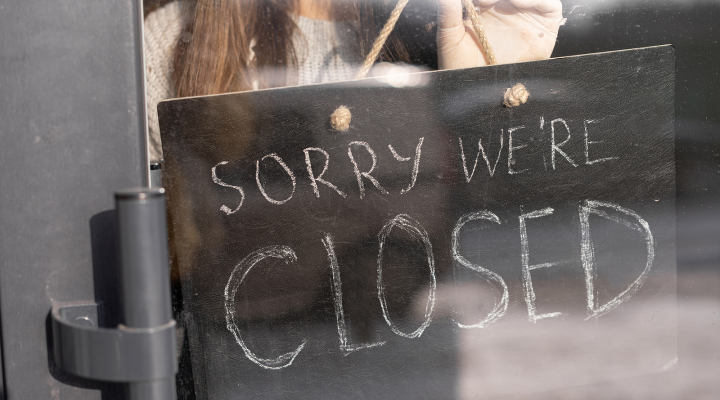The end of the JobKeeper wage subsidy scheme could force 488,000 businesses to layoff staff and lead to almost 100,000 business closures, a new study has found.
Research commissioned by Small Business Australia found the end of the wage subsidy could have a devastating impact on small businesses, forcing 224,000 businesses to move premises and 192,000 to sell assets.
The analysis also found that almost 150,000 businesses are likely to close indefinitely, and roughly 100,000 will close permanently.
The study surveyed the effects of the coronavirus pandemic on 600 businesses across 25 sectors in the December quarter of last year.
The $85 billion JobKeeper program helped more than 1 million businesses and 3.8 million employees through the COVID-19 pandemic, and the economic fallout. But, it will wind up on March 28.
The second phase of JobKeeper ran between October and December and supported about 2.2 million workers. By the end of December, the number of workers receiving JobKeeper had dropped to 1.54 million, according to the Australian Taxation Office (ATO).
With the end of the program looming, criticism about how the scheme was administered and whether it was distributed fairly has intensified.
The National Audit Office is currently investigating the ATO’s administration of JobKeeper in an audit, focused on whether the tax office effectively administered the rules and monitored the scheme’s performance.
However, Federal Labor believes the audit does not go far enough, and is demanding the government establish a public register that would require all large firms to disclose their JobKeeper receipts on a public-facing database.
A report published today by Ownership Matters found 32% of the ASX’s top 300 companies disclosed they had received government subsidies in the 2020 calendar year.
Within that group, 66 companies received a total of $13.8 billion in JobKeeper payments in the six months to the end of December.
More than half of those businesses reported strong profit figures and better underlying earnings compared to pre-pandemic levels.
What’s more, the report stated that the disclosure of government subsidies by publicly listed entities significantly varied in quality.
Some firms accounted for JobKeeper payments as an offset to employee expenses, and others recorded the payments as ‘other income’.
“In a small minority of cases some entities provided no disclosure of government assistance but the existence of such assistance was disclosed by the government itself,” the report states.
The findings suggest the design of the JobKeeper program allowed companies to hold on to payments even if their profits increased after they had qualified.
Despite this design feature, some companies have voluntarily promised to repay JobKeeper payments including Toyota, Super Retail Group, Iluka Resources and Cochlear.
This story originally appeared on SmartCompany and has been republished with permission.






